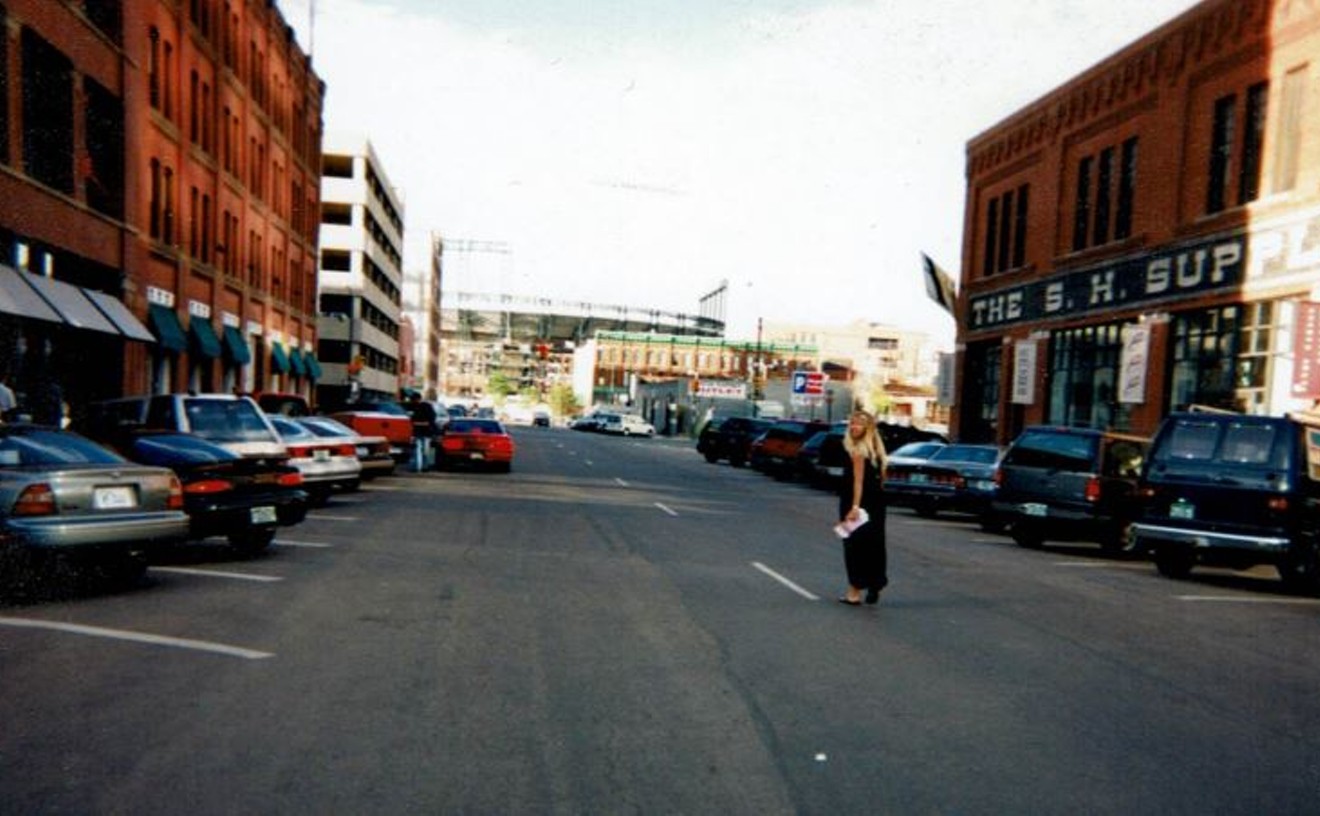The mythology of the West as depicted in dimestore novels and Hollywood fantasy has been pretty thoroughly discredited by now; since the 1980s, a rash of revisionist works have described lives of deprivation, hunger and dirt — not to mention greed and exploitation — on what historians no longer want to call the frontier. Now comes Calamity, a play co-written by Stephen Wangh and Suzanne Baxtresser that brings Calamity Jane back to life, re-creating one of the Wild West shows in which she starred at the turn of the last century. But here Calamity also confronts the present — along with current ideas about just who she was and what her life means — in the person of the entirely contemporary musician she's hired to accompany her. She taunts him with his ignorance of the real West; he shudders when she speaks blithely of shooting Indians. He also tries, with increasing difficulty, to keep her in check. Because as played by Ethelyn Friend, this Calamity is an insane and irrepressible handful — a drunken, obscenity- and insult-spewing, self-pitying, sometimes powerfully insightful and sometimes pathetically self-destructive creature. Real-life musician Michael Frayne, himself a quietly determined performer, rides this show like a cowboy astride a bucking bronco. No sooner does he get the creature quieted down than it erupts again into ferocious action.
The Rock N Soul Cafe is a small Boulder coffeehouse that serves snacks, drinks and wickedly good desserts, a venue that exudes coziness and warmth. But Friend fills the place up and explodes it outward with burst after burst of sheer raw energy. She evokes the unpaved main street of Deadwood, where she sometimes wallowed in a drunken stupor, her cheek nestled against the soft mix of mud and horseshit as though against a pillow. Also: her horse, Satan; the gunslinging feats she may or may not have accomplished; her life as a whore; the many husbands she may or may not have married; the vaudeville performances she tended to stumble through in her inebriated later years; the little girl, Jane, she picked up at some point who was perhaps her flesh-and-blood daughter, perhaps the child of one of her husbands. She insists on her own unfitness as a mother in tones that veer between lamentation and boast, all the while cradling a bottle in her arms as if it were a swaddled infant. She no sooner floats a well-known incident in Calamity's life than she shoots it down again or muddies it up: This woman is so alcohol-sodden that she's no surer of facts of her own life than later historians. But every now and then she imparts some genuinely touching or significant piece of information, or permits a glimpse into her soul.
Calamity particularly enjoys abusing her musician, but periodically they collaborate, coming up with intriguing little canters and rhythms. He knows her well; she perhaps has a grudging respect for him. The production is patched through with songs, some original, some familiar. A patter-rap song about work stops the show a bit too long and feels too showpiece-y, but folk songs like "The Wagoner's Lad" are deftly incorporated, and Friend imitates Doris Day's delivery of "The Deadwood Stage" in the film Calamity Jane — both tone and phrasing — with uncanny malice and accuracy. Aside from this, most of the singing is raucous and deliberately unbeautiful, with a few full-throated howls thrown in for good measure.
The script doesn't really tell you anything about Calamity Jane, the Old West, or the slipperiness of historical narrative that you didn't already know, but it brings to these concepts a vividness you can only get through art. What a nuisance this woman must have been in her time, you think. How unbalanced, violent, quarrelsome, crazed and ultimately despairing. And also — how hugely alive.











